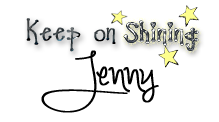The brain loves contrast. Contrast helps the brain pick up patterns and focus attention. At the beginning of the school year I spend about six weeks helping my students learn the patterns/routines and expectations of our classroom. This enhances feelings of safety.
One of my favorite teaching tools during this time is the book How Do Dinosaurs Go to School. There are several other similar books in this series by Jane Yolan and Mark Teague. They are so much fun! Through the use of contrast and humor they teach valuable social-emotional lessons. Follow the link below to learn more about this book and others!
After reading this story with the children we make a class book titled: How do Preschoolers Go to School.
By this point, all of the children know our classroom agreements. They look something like this...
We repeat them day after day, we sing about them, and even include movements to help us remember the agreements to keep our classroom safe.
When we make the book, the preschoolers act out what it would look like if they were NOT doing these things. We take pictures of each scene. There is a picture of them fighting over toys, looking away while the teacher is reading a story, running through the classroom, and screaming and yelling. Here is an example...
 |
| Looking away while the teacher reads a story. |
 |
| Screaming and yelling while they play at the table. |
They have an absolute blast making this book! It is their chance to act naughty without any consequences. They really ham it up!
Once we take pictures of what NOT to do. We go back and take pictures of what TO DO. Once all the pictures are printed we make them into a class book.
The beginning of the book says...
"How do preschoolers go to school?"
"Do they run through the classroom and crash into walls?"
"Do they scream and yell at the top of their lungs?"
"Do they turn their back and not look at all?"
Then in the very middle of the book you put a big NO!!!!!
The second half of the book illustrates how preschoolers go to school safely.
"They walk through the classroom and in the halls."
"They talk quietly with voices so small."
"They look at the teacher when she shows a book."
...And so on until you have included all of your class agreements in the book. I like to end the book with a photo of our entire class including teachers and something like, "My job is to keep you safe, your job is to help keep it safe. THAT'S how Preschoolers Go To School!"
Picture rule cards are also helpful. These are images that you post around the classroom, school, or home to show children two positive options and one that is not an option. You can print images off of the internet or take photos. Conscious Discipline also has a premade pack of Shubert's Picture Rule Cards that you can purchase.
As in the example above, these images show children what you want them to do. "You may clean up your workspace by yourself." "You may clean up your workspace with a friend." "You may not leave a messy workspace."
When a child has trouble remembering your classroom expectations, the first consequence is to choose again. Send the child back to the pictures for a reminder and guide them in making a different choice.
Self-regulation is a right brain job. The right brain needs images to help govern behavior. The best thing about images is that they don't get tired of reminding children what to do! :)
Until next time, I wish you well!











No comments:
Post a Comment